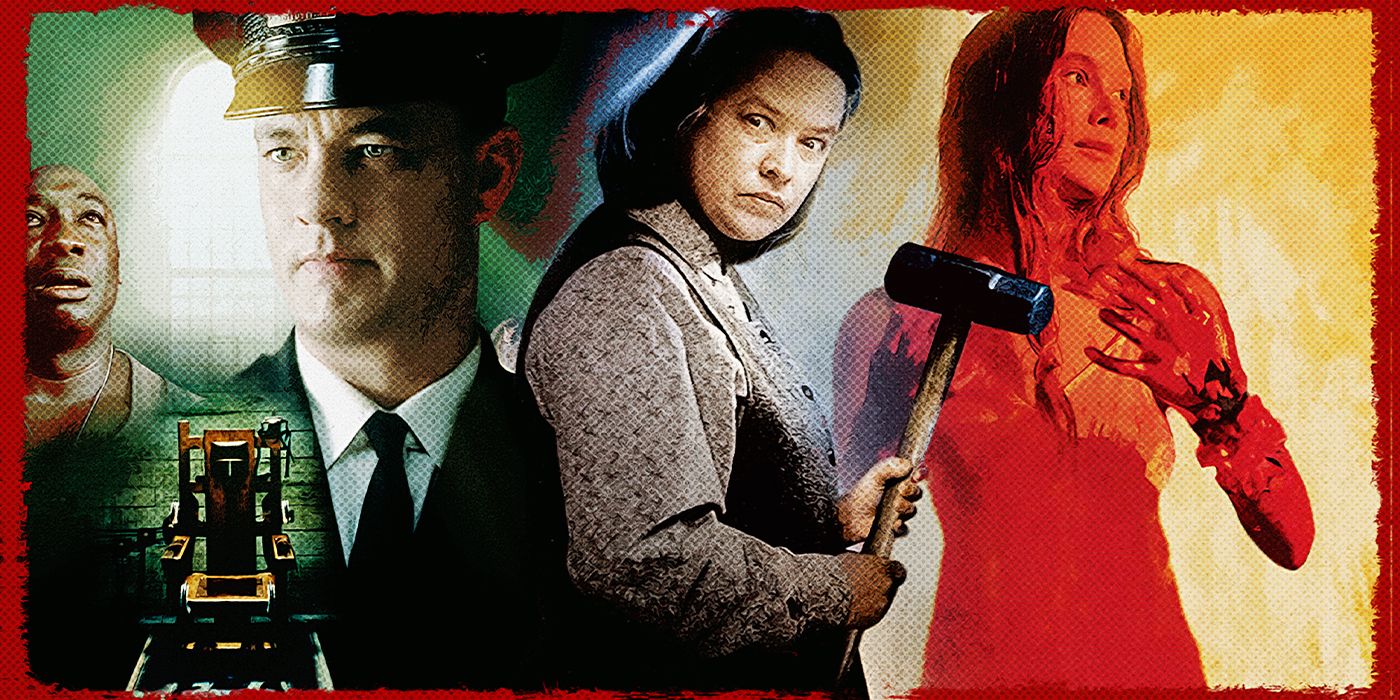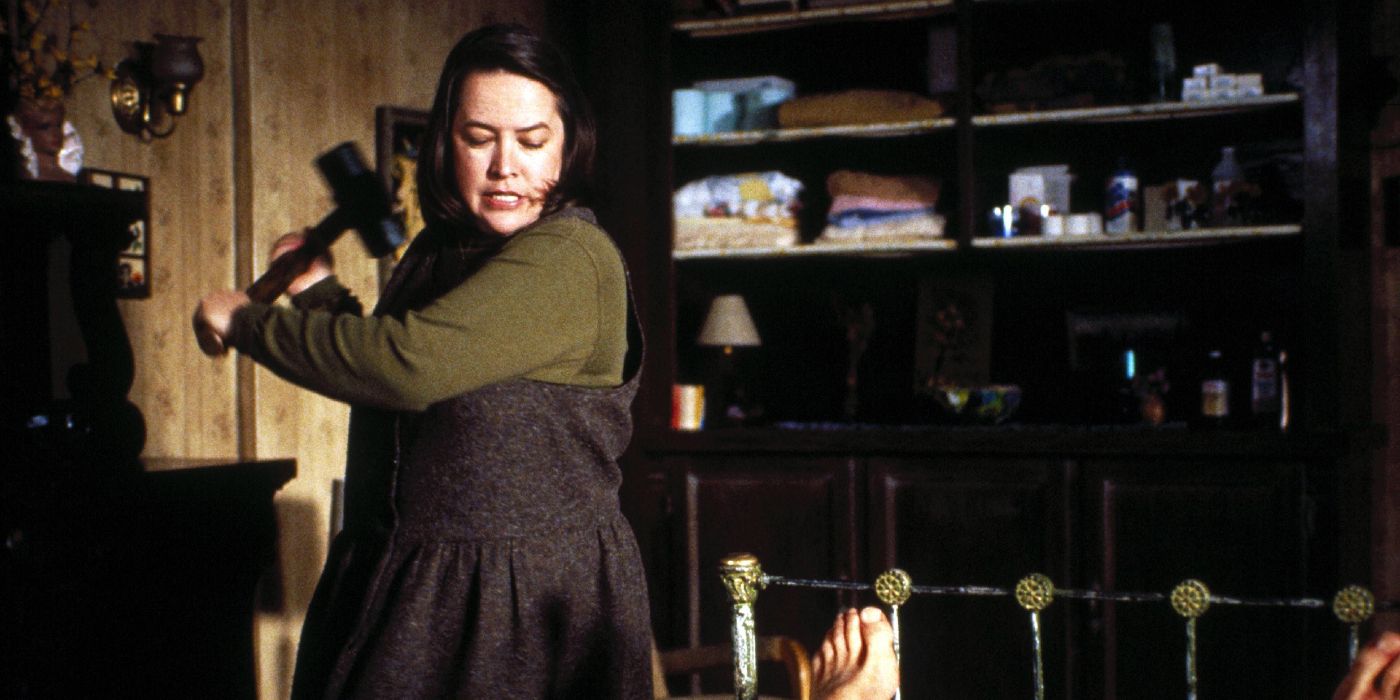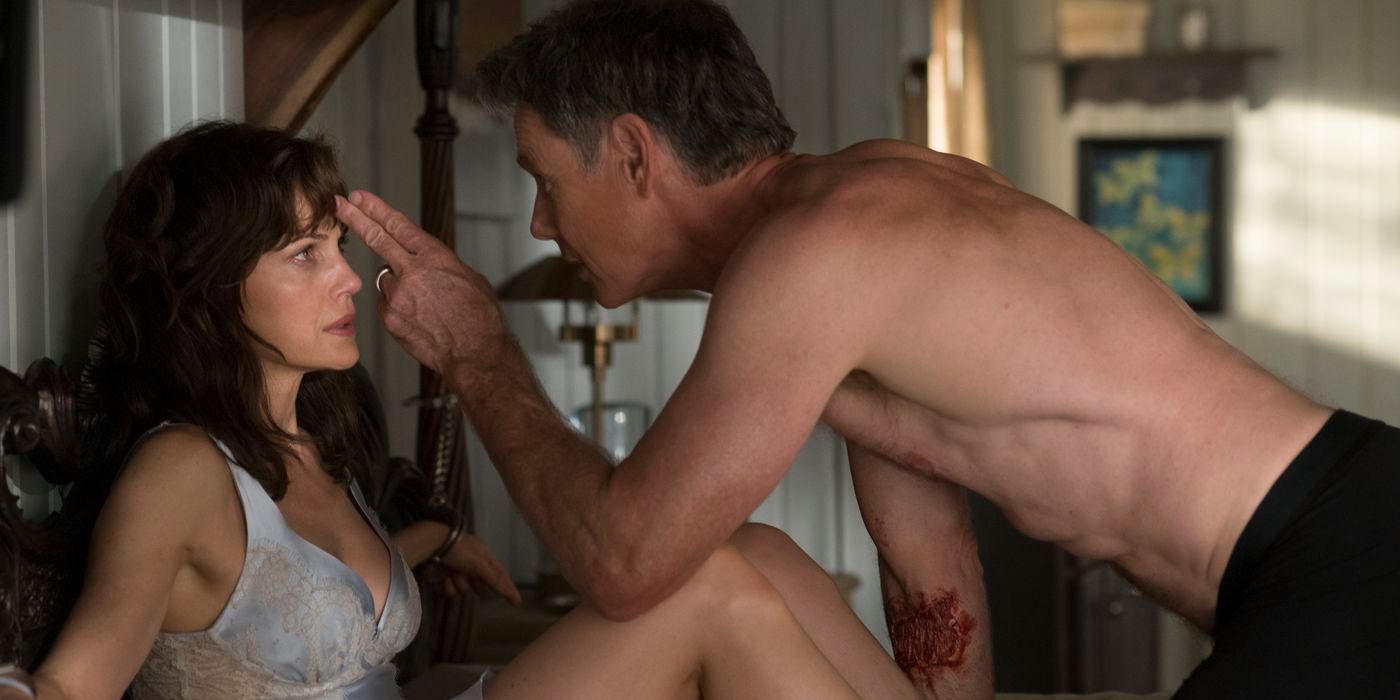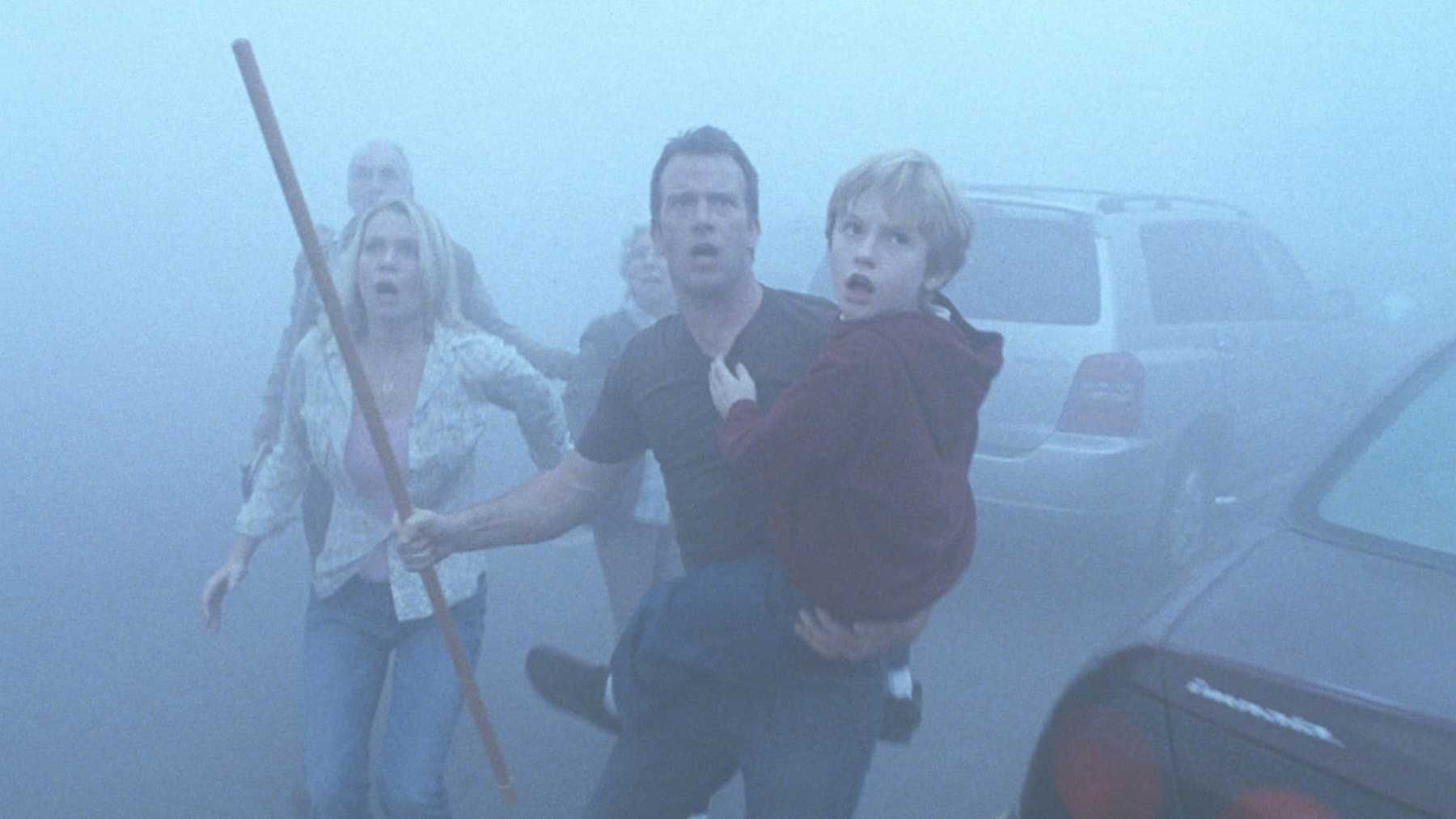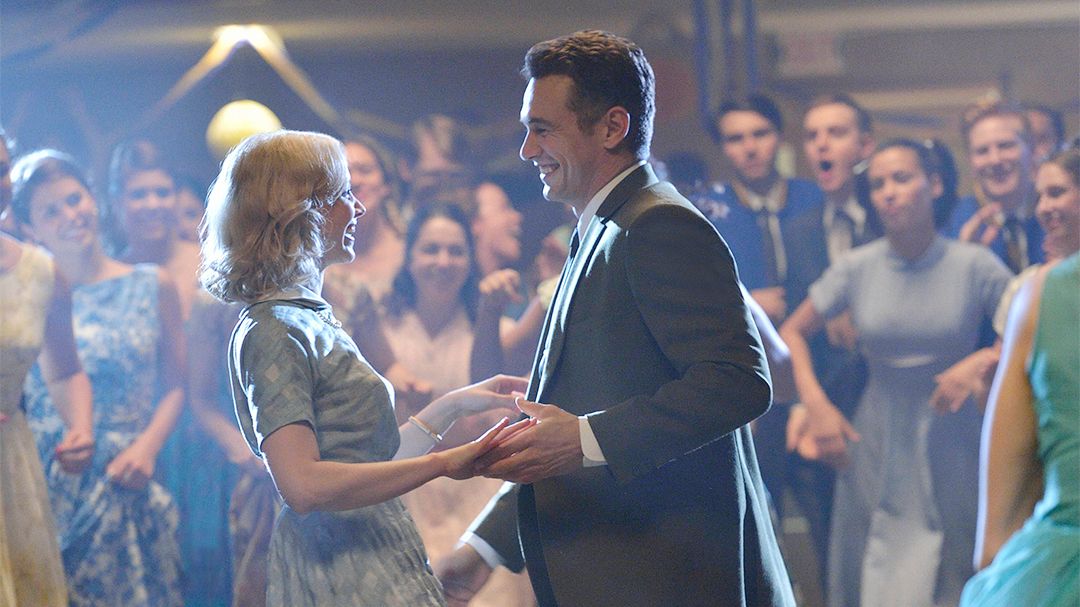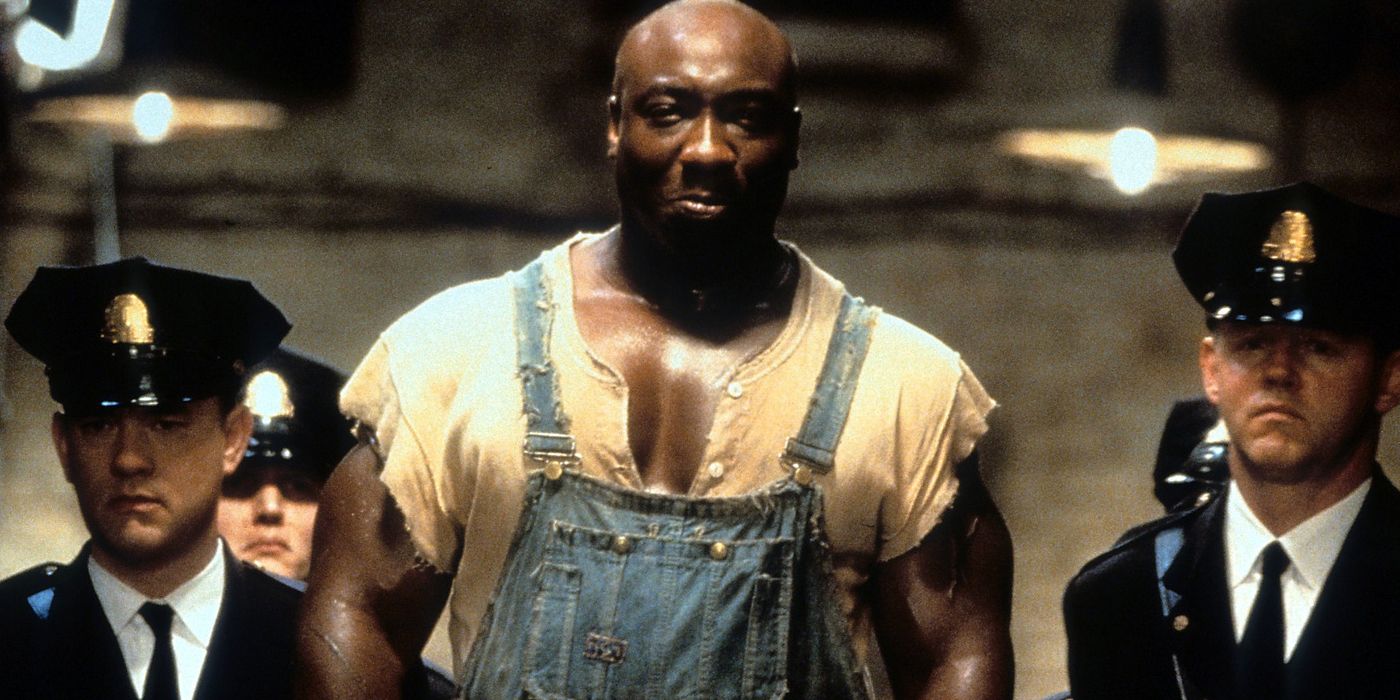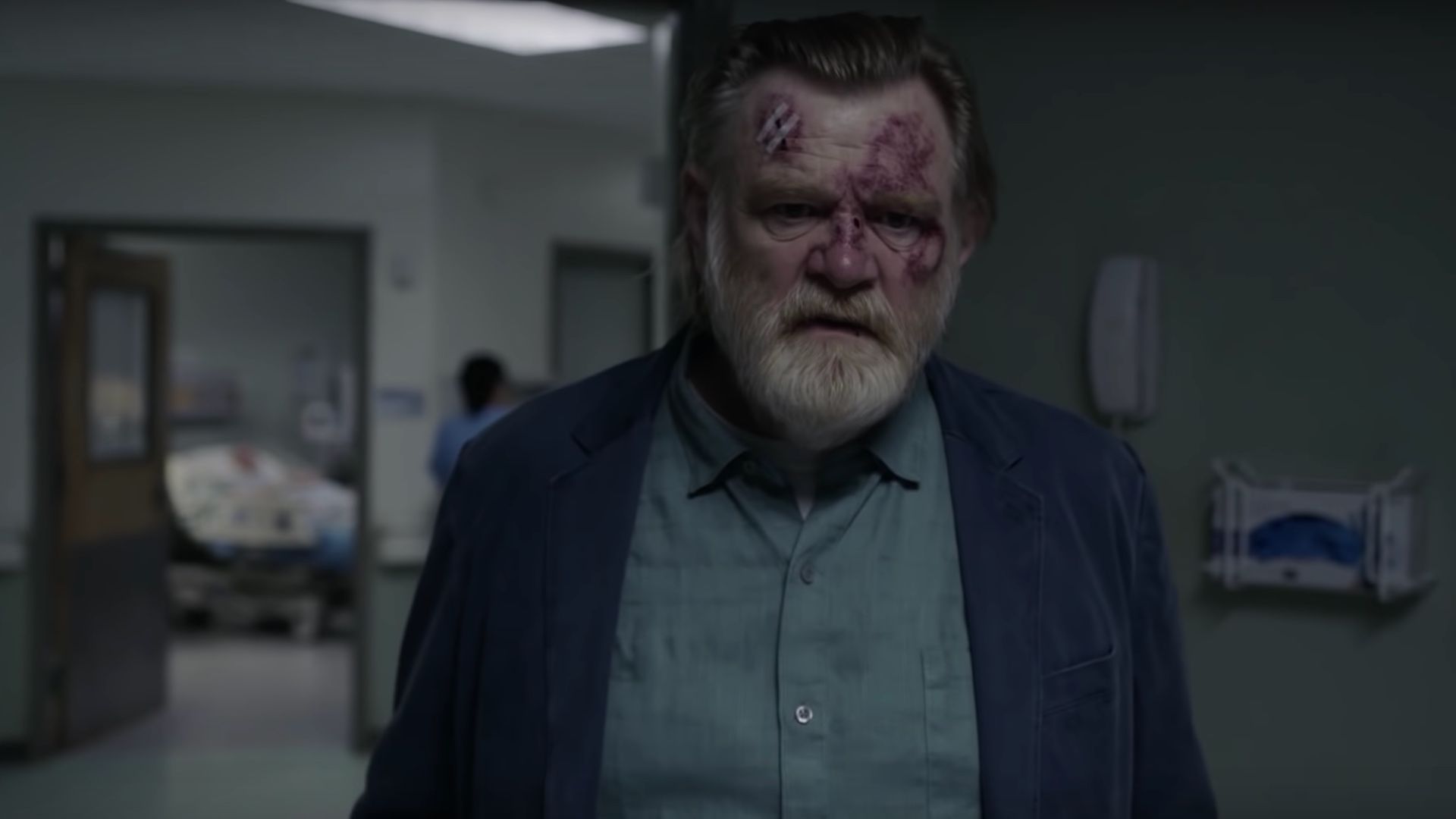Solid Stephen King adaptations seem to have an elusive quality about them. Are his written horrors scarier on the page? Is King's skillful use of evocative language just too difficult to translate to the silver screen? Whatever the reason, more times than not, a film managing to honor King's deft character work while successfully translating both the human and supernatural horrors lurking between the pages is less likely than Carrie White getting asked to the prom. After all, countless films have tried (and failed) to successfully capture the magic of King's novels over the course of the prolific writer's nearly five decades churning out unforgettable classics packed with vivid details and raw emotion that highlight the triumphs, struggles, and horrors of average, working-class people.
Viewers don't have to look much further than King flops like The Mist television series and the seemingly endless installments in the Children of the Corn franchise to see that not every attempt is a winner. However, there are some that manage to rise to the occasion and deliver a faithful adaptation of the source material. From the tight tension of Misery to the brilliant character work of The Green Mile, some King films aren't just clear success stories, they're classics. Here are seven Stephen King adaptations that managed to get it right.
Carrie
King fans would be hard-pressed to find a more heartbreaking protagonist than Carrie White (Sissy Spacek). The socially awkward high school senior with telekinetic powers is a character guaranteed to gain audience sympathy: She's neither wealthy nor popular, bullied by her peers, and suffers beneath the domineering hand of her fanatically religious mother (Piper Laurie), all while dealing with the overwhelming discoveries of her developing body — and telekinetic powers. Carrie is a simple story told well that packs a punch on the big screen.
While the novel takes an epistolary format -- composed of letters, news reports, and interviews -- the film takes a more straightforward approach and allows us to get even closer to Carrie and her mother than the novel. It's here that the film really shines, especially in the performances of Spacek and Laurie, which bring the characters of Carrie and Margaret White to stunning life. Spacek nails the role of the meek and awkward Carrie; her honest and humble portrayal makes us ache for Carrie's loneliness and sorrow while wishing that things will turn out okay for her even when we know that they won't. Laurie is equal parts terrifying and tragic as the fire-and-brimstone-shouting Margaret, and it's no surprise that both actresses received Oscar nominations for their performances in the film. Carrie is an expertly crafted character study that also manages to make thoughtful statements on bullying and toxic parenting in a way that is equal parts frightening and heartbreaking.
Misery
Misery is one of the rare King films that manages to successfully translate the novel's brilliant character work to the screen. With Paul Sheldon's (James Caan) quiet calculations and slowly mounting horror alongside Annie Wilkes' (Kathy Bates, who won an Oscar for the role) alternating gentleness and unchecked rage, Misery beautifully captures the tense, claustrophobic feel and emotions of the source material. Rob Reiner's skills as a director are visibly displayed here, and he smartly favors the novel's character building and mounting tension with expert pacing that allows each scene to breathe. Without this, it would have been remarkably easy for the film to descend into bargain-bin horror schlock, but instead it transcends its genre as a chilling tale of survival. Reiner also knows how to get the best out of his actors, with Caan and Bates giving brilliant and committed performances that completely sell the material. Misery is packed full of character-driven suspense while also managing to faithfully follow the novel's plot. The result is proof that sometimes following King's source material is the key to success. Misery isn't just a great (and classic) film that still holds up today, it's one of the best Stephen King adaptations of all time.
Gerald's Game
With Gerald's Game, director Mike Flanagan took what was once thought to be an unfilmable novel and knocked it out of the park. Despite Flanagan himself admitting that the book is "really impossible to adapt," it's an impressive feat that he finds a solid work-around to one of the novel's main narrative devices. After all, a good chunk of the book takes place within protagonist Jessie Burlingame's (Carla Gugino) head after her husband, Gerald (Bruce Greenwood), handcuffs her to the bed and dies atop her. By taking Jessie's inner thoughts and bringing them into the "real" world so that it instead becomes a dialogue between her fracturing mind and her dead husband, Flanagan manages to keep faithful to the source material's characters while making the novel's hard-to-translate elements visually appealing.
The film also features outstanding and thoughtful character work from Gugino, whose performance is as captivating and chilling and as it is triumphant. It's a testament to Flanagan's understanding of the importance of developing multi-dimensional characters that her arc (and the horrors she experiences along the way, both internal and external, overt and subtle) works so well. Gerald's Game is a lesson in how to successfully adapt Stephen King material. The directing is sharp, the pacing is thoughtful without dragging, and Flanagan manages to create and sustain tension and suspense while confining the film to (mostly) one central location.
The Mist
The Mist isn't just a solid adaptation of King's novella, it's better. Frank Darabont is arguably the undisputed master of Stephen King adaptations, and his solid track record that began with The Shawshank Redemption continues with The Mist, a story of a group of New Englanders who become confined to a grocery store when a mysterious mist descends upon their town. The setup is a familiar one, but it's the resulting events that make The Mist stand out. From untrustworthy neighbors, to the chaos that results from food shortages, to creatures infiltrating the gang's safe haven, Darabont packs the film to the brim with enough action, suspense, and character-driven tension to adequately fill the film's two-plus-hour runtime.
What's more, it takes the characters from King's story and makes them even deeper and more three-dimensional. David Drayton's (Thomas Jane) fear and desperation as he attempts to protect his young son is the film's emotional through line, but where the character work really shines is in the film's depiction of religious zealot Mrs. Carmody (Marcia Gay Harden). With her holier-than-thou demeanor, Mrs. Carmody firmly believes that the mist is the beginning of the End of Days. And because of her persuasive oration and the fear of her fellow survivors, many of the people stuck in the supermarket begin to believe her. The result is a deft portrayal of the dangers and horrors of mob mentality, what fear can do to the human psyche, and religious and political zealotry. This, combined with The Mist featuring one of the boldest and shocking endings in horror movie history, makes it a top tier King adaptation.
11.22.63
The beauty of a limited series is that it allows for the development of characters over the course of many episodes instead of cramming hundreds of pages of character arcs and growth into a two-hour movie. It's a move that really pays off in 11.22.63, Hulu's 8-episode miniseries that revolves around an English teacher named Jake (James Franco) who travels back in time with the goal of preventing the assassination of John F. Kennedy. Eight episodes is plenty of time to make for an unrushed story and gives the characters, action, and suspense plenty of time to grow and breathe. It's missing some of the subplots that gave the novel a little extra of King's signature flair, but it's a pretty faithful adaptation of King's story and beautifully captures its heart and soul through the honest and touching performances of Franco and Sarah Gadon, as well as fantastic production design that make it feel as if we, too, have stepped back into the 1960s.
The Green Mile
Frank Darabont's track record continues with The Green Mile. Tom Hanks plays Paul Edgecomb, a death-row prison guard whose life is transformed after witnessing supernatural events following the arrival of new inmate John Coffey (Michael Clarke Duncan). Darabont just knows how to make a faithful King adaptation, and The Green Mile successfully captures the spirit of King's novel — all the heartbreak and human horrors, magic and mystery — that made it work in the first place. The casting is inspired, as are the performances, especially that of Michael Clarke Duncan as John, who he imbues with innocence, empathy, and charming meekness. For all its hard truths about society and the monster inside us all, The Green Mile is also filled with wonder, unafraid to tackle the challenge of adapting the novel's big themes while making statements about life, death, morality, and living with the choices that we make. It swings big, but its risky choices pay off with its audience acclaim as well as earning a nomination for a Best Picture Oscar (one of only two King movies to achieve that feat).
Mr. Mercedes
Mr. Mercedes is another winner among Stephen King television adaptations. The three-season series that covers each of the stories in King's Bill Hodges trilogy (Mr. Mercedes, Finders Keepers, and End of Watch) is faithful to the source material and successfully captures both the grounded crime and supernatural elements of the books. The novels' true crime feel is translated well to the screen, as are the series' memorable characters. Among others, retired cop Bill Hodges (Brendan Gleeson), the villainous Brady Hartsfield (Harry Treadaway), and the brilliant yet socially awkward Holly Gibney (Justine Lupe) are brought to life in vivid detail thanks to the series' writing and a cast that turns in rock solid performances. The series features some departures from the novels, but nothing that causes major changes to the characters or plot. In fact, many of the tweaks result in a streamlining of the source material and a deepening of the characters. Not only is Mr. Mercedes capably written and directed, it's filled with plenty of tension and suspense that makes it a faithful, compelling, and bingeable King adaptation.

